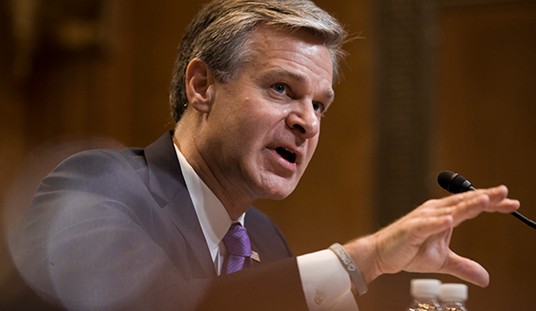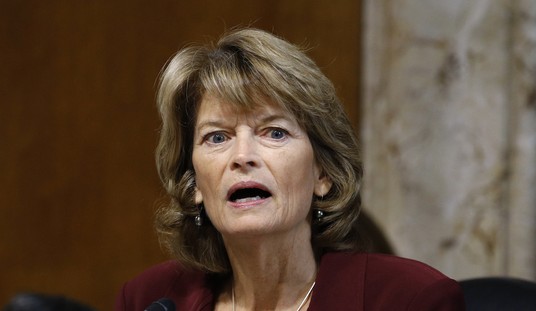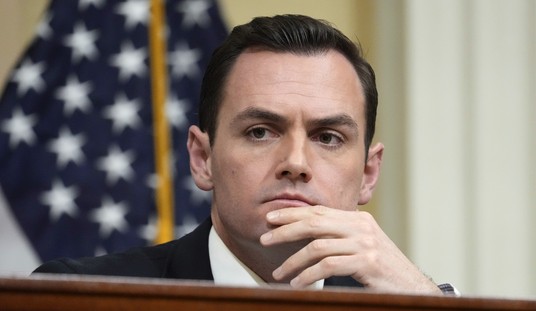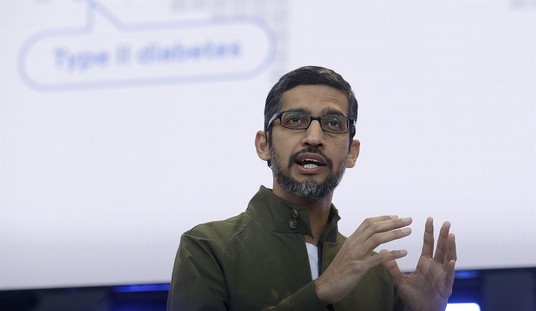Did Donald Trump issue an all-caps tweet at Iran’s leaders as a way to distract from his performance in Helsinki? More than a few observers assumed so, but NBC News reports that it’s no momentary “wag the dog” stunt. The belligerent declaration came as part of a broad, long-planned strategy to re-isolate Tehran and put pressure on its leadership:
It would be easy to write off President Donald Trump’s bellicose tweet threatening Iran Monday morning as a bit of “wag the dog,” a diversionary tactic to blunt criticism of his fawning treatment of Vladimir Putin in Helsinki, or from the news that his lawyer may possess embarrassing tapes with his voice.
There was no doubt that a tweet warning Iran it could suffer “consequences the likes of which few throughout history have ever suffered” would get a great deal of global attention, and to make sure that it did, Trump wrote most of the tweet in capital letters.
But according to multiple administration sources and briefings over several weeks with senior officials, the crackdown on Iran was long planned, and is entirely consistent with Trump’s long-stated objectives. …
The pre-planned strategy was timed to set the stage for the re-imposition of U.S. economic sanctions on Iran three weeks from now, officials said, following the administration’s exit from the six-nation nuclear agreement with Iran.
If anything, the tweet was a mild form of volleyball with the Iranian regime, which has spent the last 39 years promising to rain destruction on the “Great Satan.” The real provocations took place in diplomatic channels over the last two weeks, starting with US insistence that European allies stop trading with Iran. The Trump administration plans to enforce the sanctions, especially on access to the US banking system, which will lock anyone trading with Iran out.
In effect, Trump wants the pre-Iran deal band to get back together, and plans to use his North Korea playbook to force the mullahs to restart negotiations on terms more beneficial to the US. As I write in my column at The Week, there are key differences between Pyonyang and Tehran that might make that strategy unsuccessful:
[T]he mullahs in Tehran are in a much different position than the Kim regime. North Korea is getting choked by global sanctions that have finally started to bite; the economy contracted more in 2017 than anytime in the past 20 years, and the nation is enduring chronic famine. In contrast, the Iranians are far better off. Most countries dropped sanctions after the JCPOA went into effect in 2015, allowing Iran to export oil again and gain hard currency. While the government faces serious unrest over economic conditions, there isn’t widespread famine within Iran.
Finally, there is another key difference between the two nations that might influence whether high-pressure tactics can work. The Kim regime is brutal and erratic, but has one primary rational goal: survival. The Shi’ite extremists in charge of Iran at least publicly subscribe to an apocalyptic vision about a 12th Imam of Islam, whose return is the purpose of their theocratic regime and which will only happen after a great conflict. This non-rational purpose doesn’t prioritize survival, although it’s tough to say in practice just where those priorities actually lie with Ayatollah Ali Khamenei and his regime. Iran might choose war over negotiation on the basis of theocratic supremacy for several reasons, which makes a mutually-assured destruction strategy more of a gamble.
Still, the relations between the U.S. and Iran have been stagnating in open hostility for 40 years. The JCPOA didn’t change that, nor did it change Iran’s orientation as the biggest state sponsor of terrorism in the region and possibly the world. It’s a status ripe for disruption, as long as the U.S. and its allies can prepare for all of the possible consequences. At least we have consensus on a guiding principle: BE CAUTIOUS.
NBC also reports that others are also skeptical about a high-pressure campaign’s success:
“This is, it could be a disastrous misstep,” said Adm. William McRaven, the former Joint Special Operations commander in charge of the team that took down Osama Bin Laden, in an interview with NBC News.
McRaven noted that nothing in North Korea happens without Kim’s approval, but in Iran, there is a bifurcated chain of military command divided between Rouhani and Supreme Leader Ali Khamenei.
The alternatives appear to be sticking with a bad deal or doing nothing at all. Iran is running two hot wars at the moment in Syria and Yemen while exporting terrorism through Hezbollah, Hamas, and smaller groups of radicals threatening our allies. Doing nothing is not an option, while there may have been a nothing-to-lose argument for sticking with the bad deal, since we surrendered all our concessions up front anyway. That still leaves Iran attempting to control the region at the expense of our Sunni-state allies and Israel, an effort that didn’t seem to worry the Obama administration much when it was cutting the bad JCPOA deal three years ago.
Trump didn’t get elected by promising to do nothing or to follow the same policies as Barack Obama, especially on Iran. He got elected on the promise to disrupt the status quo and put the US in better position to dictate terms. Undoubtedly this has been the strategy all along. Now we just have to see if it works, and whether our allies will cooperate long enough to see.
Update: After a lot of sticks, Reuters reports that Trump tried the carrot today:
“We’ll see what happens, but we’re ready to make a real deal, not the deal that was done by the previous administration, which was a disaster,” [Trump] said during a speech to the Veterans of Foreign Wars.
Separately, Defense Secretary James Mattis echoed and clarified Trump’s tough rhetoric:
“It’s time for Iran to shape up and show responsibility as a responsible nation. It cannot continue to show irresponsibility as a revolutionary organization that is intent on exporting terrorism, exporting disruption, across the region,” said Mattis, a retired Marine general.
“So I think the president was making very clear that they’re on the wrong track.”
Don’t expect that to lead anywhere, but bear in mind that it’s intended to be a long-term strategy.








Join the conversation as a VIP Member